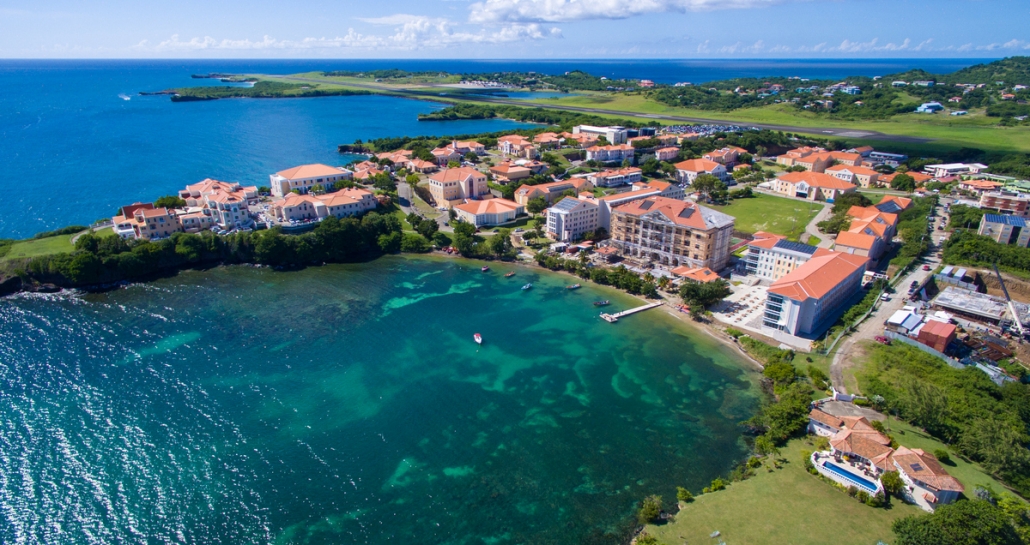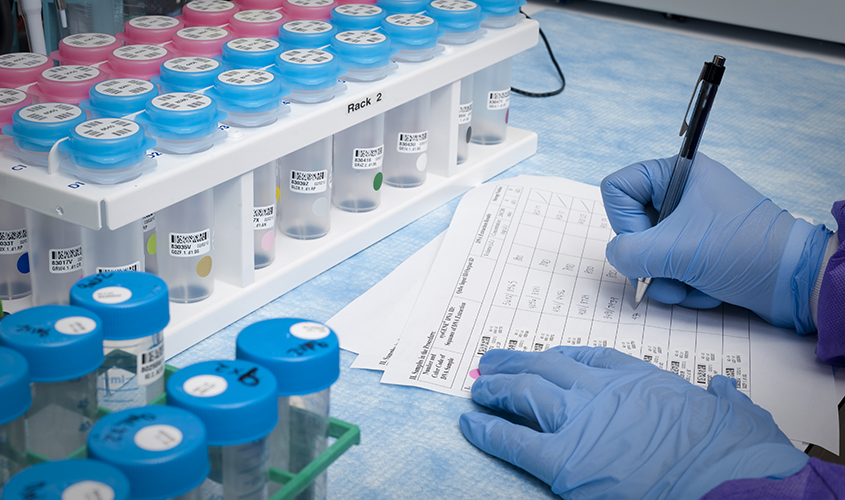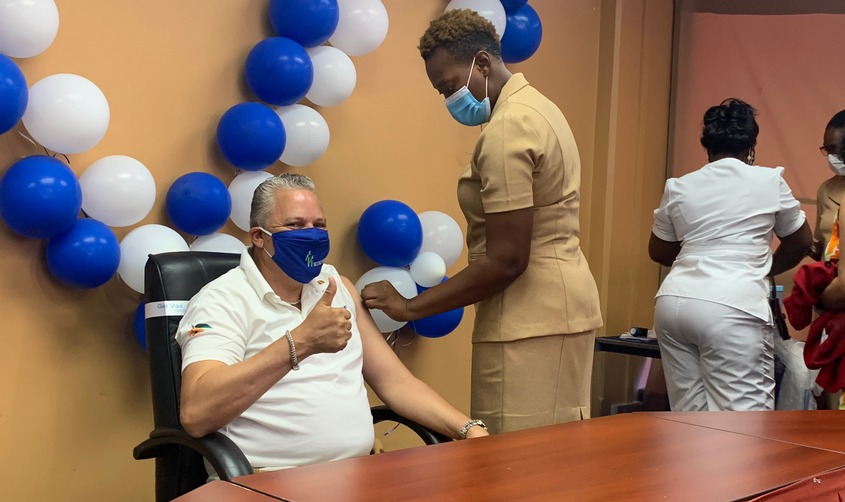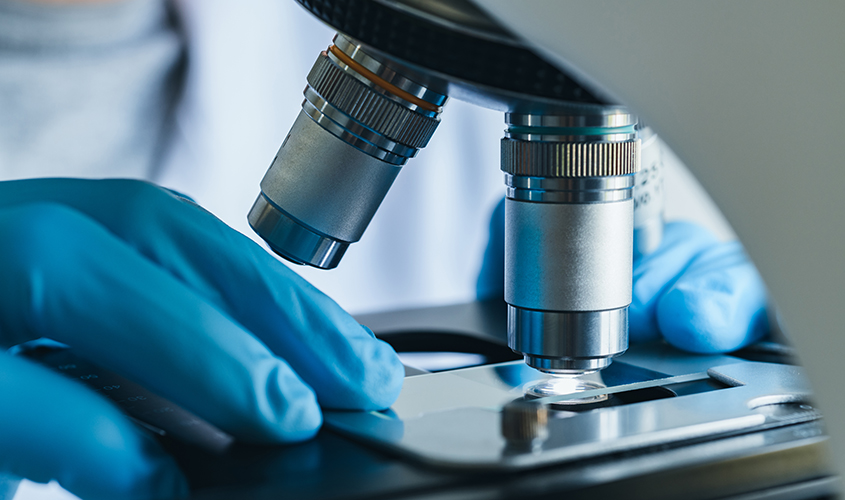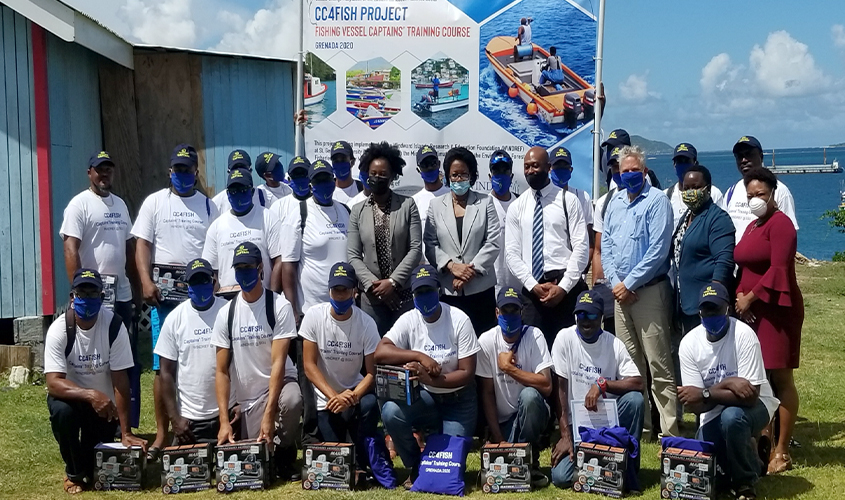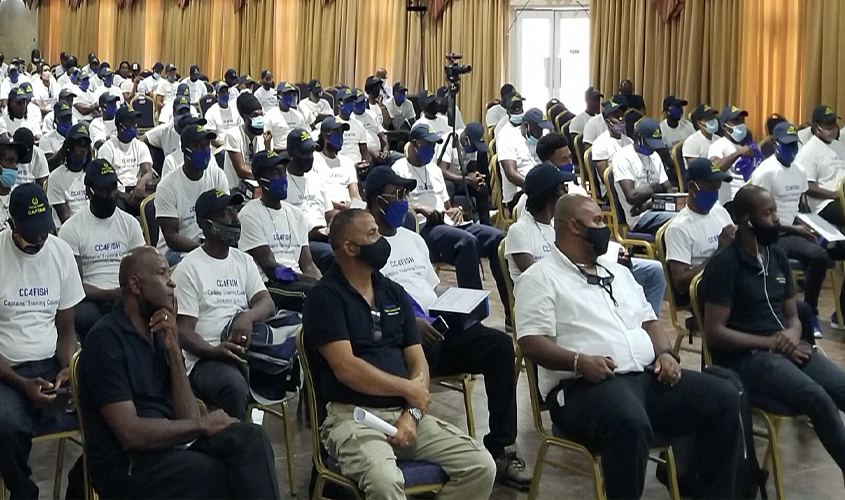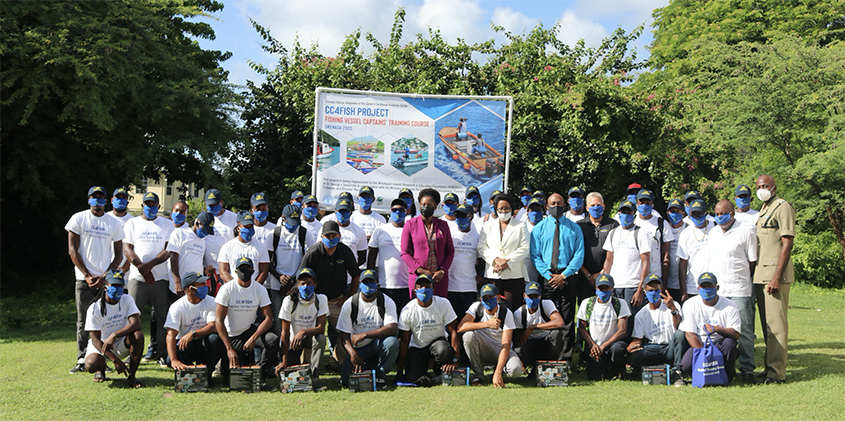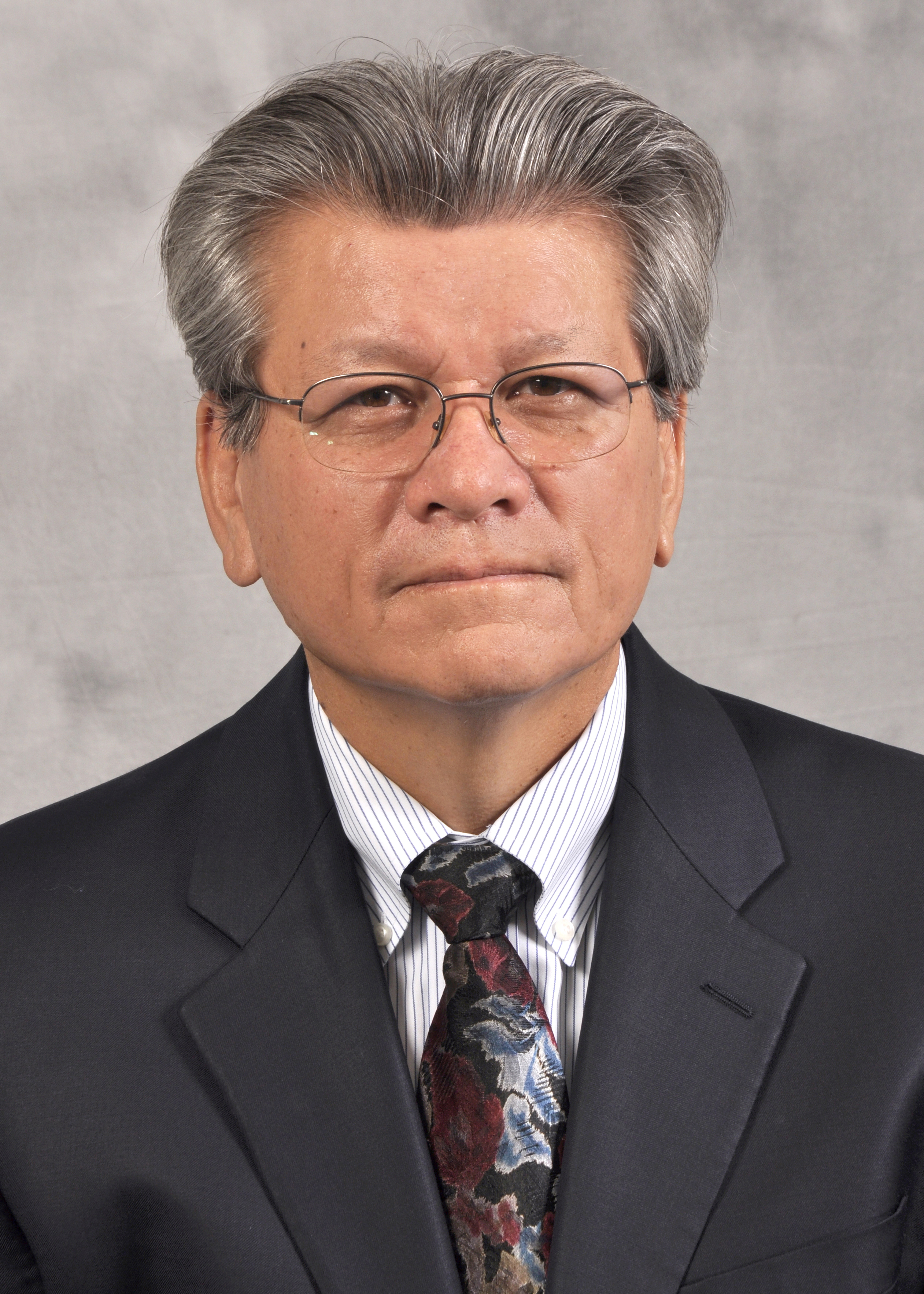New DNA sequencing ability at WINDREF aids Grenada in identifying new COVID variants
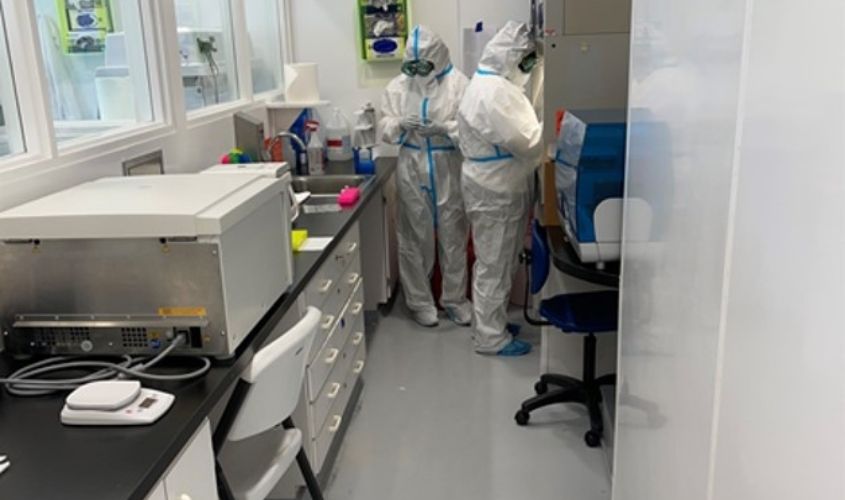
Drawing on the strong partnership between St. George’s University and the Government of Grenada throughout the COVID-19 pandemic, new DNA sequencing capabilities at the campus-based Windward Islands Research and Education Foundation (WINDREF) will help to identify new variants of the virus in Grenada—and be a resource for the country and other Caribbean nations to identify additional infectious disease variants.
“The potential public health impacts of having this research tool available to Grenada and potentially for the Caribbean region is significant,” said Dr. Calum Macpherson, director of WINDREF and dean of SGU’s School of Graduate Studies. “Being able to provide findings on the variants that are circulating in Grenada, as well as those that have circulated in the past and any new variants that arise, is critical information that can be referred to when creating policies and responses to the virus as a country and region.”
With funding from SGU, WINDREF acquired two DNA sequencing machines in early December to identify pathogen variants. The process, which entails testing infected individuals’ RNA samples for viral load, and then comparing the results to global databases, was used to confirm that the Omicron variant was detected in patients in Grenada as of the end of December.
The research team at WINDREF underwent an intense six-hour online training session in order to learn how to use the sequencer. The training was provided by Dr. Nikita Shadeo, Mr. Vernie Ramkisson, and Mr. Soren Nicholls from the PAHO-WHO Reference Sequencing Lab at the UWI St. Augustine Campus located in Trinidad, which is headed by Professor Christine Carrington.
“The potential public health impacts of having this research tool available to Grenada and potentially for the Caribbean region is significant.”
Among those who are now qualified to work on the sequencing data is Vanessa Matthew-Belmar, MSc ’16, who is going to use this technique to study the evolution of the variants found in Grenada over time as part of her research work towards her PhD. Ms. Matthew-Belmar is also a member of the COVID-19 testing team that assisted in the nation’s PCR testing program. In the early stages of the pandemic, the testing program was based on the SGU campus.
“I will use the potential of the sequencing equipment to investigate important epidemiological, viral, and public health issues raised by the circulating variants over time,” said Ms. Matthew-Belmar.
Other members of the sequencing team include: Dr. Trevor Noel, deputy director of WINDREF; Clarkson University MSc student, Nandy Noel, WINDREF lab technician, Elsa Chitan, an SGU MPH graduate, and Nikita Cudjoe, WINDREF’S COVID-19 testing team manager.
Going forward, Dr. Macpherson said that any patients admitted to the Grenada General Hospital or who pass away with a diagnosis of COVID-19 will have their samples sequenced to determine the variant.
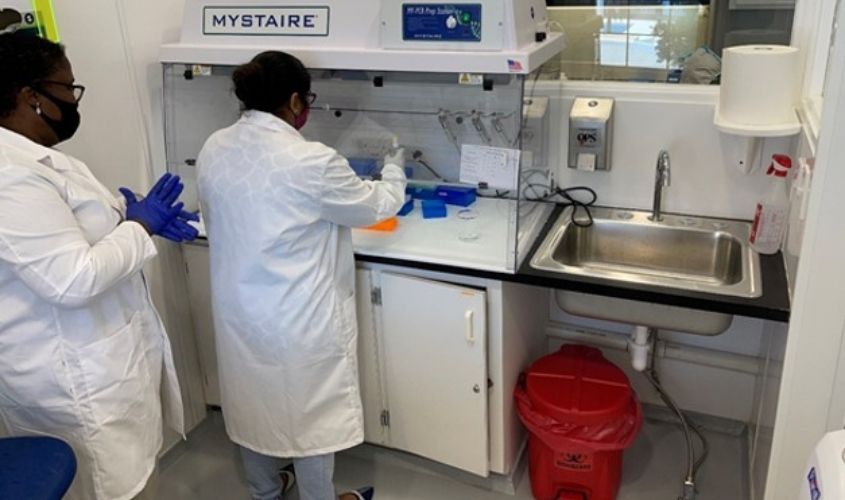
The sequencing equipment is not only available to analyze the SARS-CoV-2 variants seen in Grenada since the start of the outbreak, but it also will provide a valuable resource for regional requests for disease sequencing to be conducted for other Caribbean countries, said Minister of Health, the Hon. Nickolas Steele.
“We are proud to be able to offer this service, which reflects the close partnership between the Ministry of Health, SGU, WINDREF, UWI, CARPHA, and PAHO-WHO,” said Minister Steele. “As one of only two labs in the English-speaking Caribbean region that can conduct sequencing, we are adding to the global body of knowledge, which is important for PAHO and WHO.”
Beyond COVID, the new equipment also provides “enormous potential” for understanding the further evolution of viral, bacterial, and other infectious diseases, such as dengue and the zoonotic potential of the canine hookworm species, Dr. Macpherson noted.
“Going forward, not only can we use this equipment to sequence any SARs-CoV-2, but we can also use it to sequence all other diseases,” he said. “It’s an incredibly powerful technique that can be an important diagnostic addition in Grenada’s toolbox as we continue to fight this pandemic.”
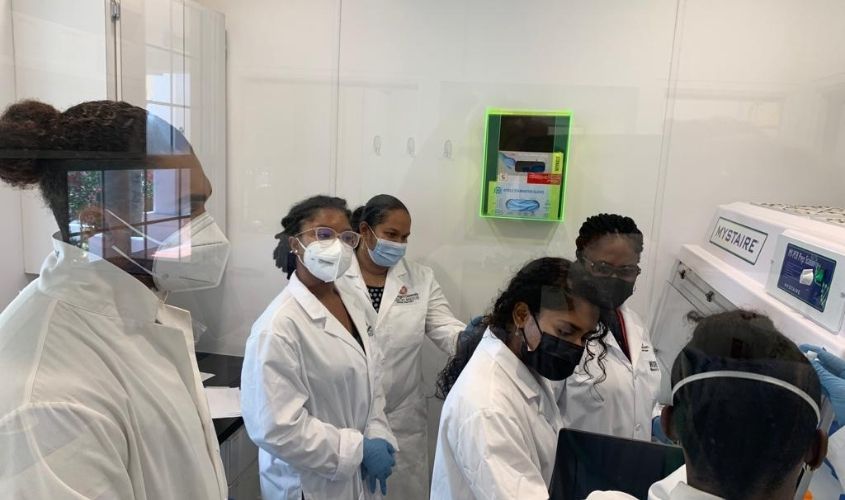
-Laurie Chartorynsky
Related Reading
SGU and Grenada: A strong partnership to address the COVID-19 pandemic
World Health Organization redesignates Collaborating Center at SGU
